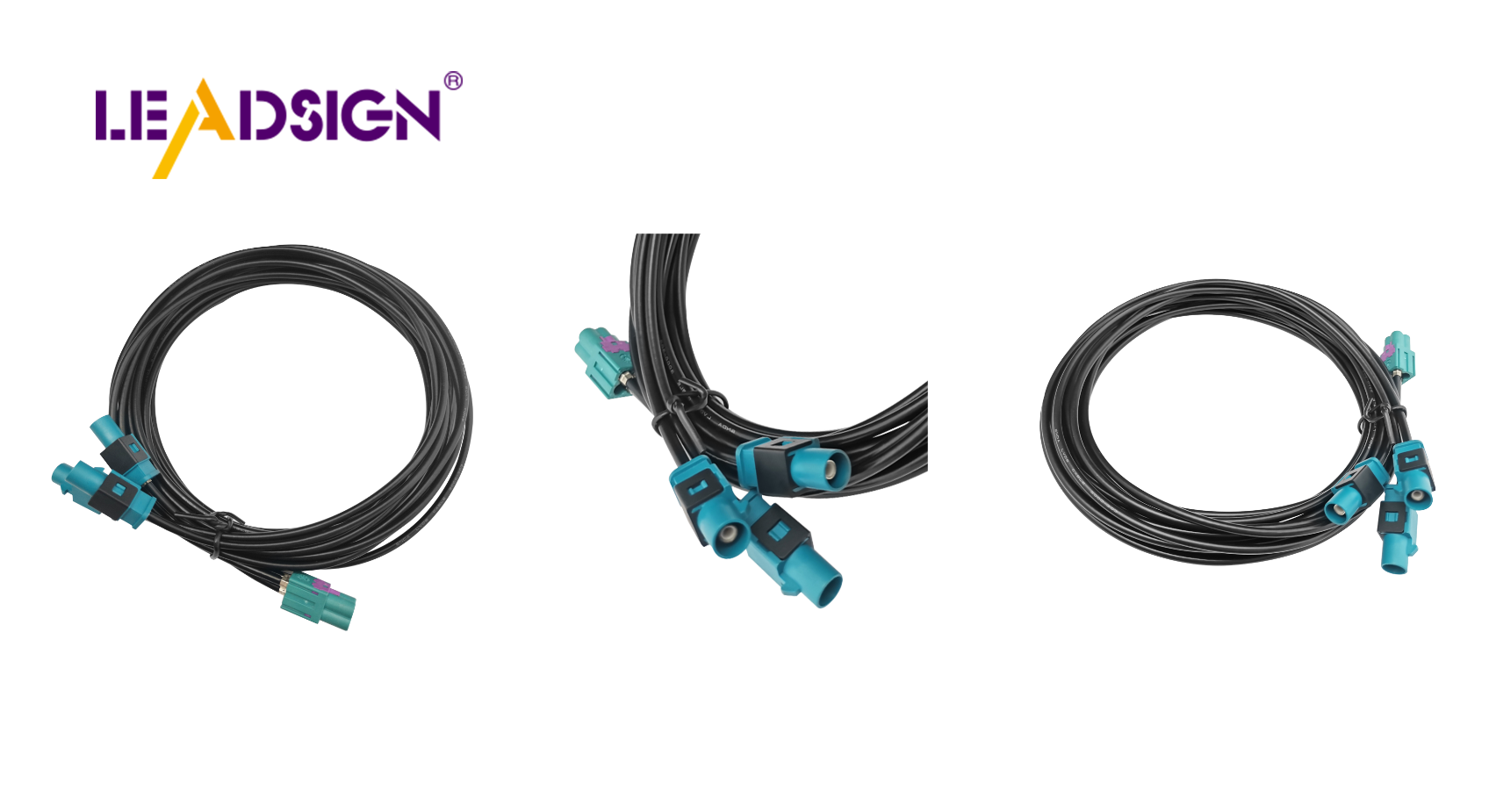A Guide to Types of Wire Connectors Automotive

Automotive electrical connectors play a crucial role in cars. They ensure the smooth and safe operation of electrical systems within vehicles. Without reliable connectors, cars may experience electrical issues that pose a safety risk. Various types of automotive electrical connectors cater to specific requirements and scenarios, ensuring secure and efficient connections. This reliability is essential for optimal car performance, highlighting the significance of different automotive electrical connectors types in maintaining the reliability of car systems.
Understanding Automotive Electrical Connectors
Definition and Purpose
What are Wire Connectors?
Wire connectors are key parts in cars. They link different electric circuits inside a car. This helps power and signals move smoothly. They come in many shapes and sizes. They fit into small spaces and are easy to install securely. By giving strong connections, they help keep a car's electronics working well.
Importance in Automotive Systems
In cars, wire connectors are very important. They make sure all electronic parts talk to each other well, like the radio or engine system. As cars get more connected, they need faster links. Connectors must work even in tough conditions like heat or wetness. Their strength affects how safe and efficient modern cars are.
General Features
Material Composition
Car connectors usually have plastic or metal covers. Plastic is light but strong, good for many uses. Metal is used for heavy jobs because it's tough. Some have copper plating to improve electricity flow and stop rust.
Design and Construction
The design of car connectors aims at being strong and reliable. They fit tightly into car systems to guard against weather issues. Many are waterproof and dustproof for safety in different places. Some have a modular design for easy fitting in tight spaces, which is important for new cars with less room. By looking at things like current rating and wire size, makers ensure these connectors suit car needs.
Types of Automotive Electrical Connectors
Car connectors come in different kinds. Each type has a special job in car systems. Knowing these helps pick the right one for each use.
Crimp Connectors
Crimp connectors are popular in car wiring. They are easy to use and dependable.
Kinds of Crimp Connectors
Butt Connectors: These join two wires together. They help make wires longer.
Ring Connectors: Used to attach wires to a bolt or screw, making them secure.
Spade Connectors: These let you easily connect and disconnect from a terminal block.
Uses in Cars
Crimp connectors are used in many car parts. They link wires in lights, battery ends, and engine parts. Their strong hold keeps cars working well.
Solder Connectors
Solder connectors give a lasting bond by melting solder around the wire joint.
Good and Bad Points
Good Points:
Gives a strong, long-lasting link.
Has great electrical flow.
Bad Points:
Takes more time and skill to put on.
Hard to take off once attached.
Usual Uses in Cars
Solder connectors are used where a lasting link is needed. They're found in engine controls and other important electronics.
Push-On Connectors
Push-on connectors, or quick-connects, make fast links without tools.
How They Function
These have a metal piece that fits into a slot. The link is tight but can be undone easily when needed.
Common Uses
Push-on connectors are often used for speakers, dashboard wires, and places needing quick setup or removal.
Specialty Connectors
Specialty connectors have special jobs in cars. They solve problems regular connectors can't fix. These connectors help cars work well even in tough spots.
Weatherproof Connectors
Weatherproof connectors are used where there's lots of water and dust. They have seals to keep water and dirt out. This keeps the electric parts safe, especially outside or under the hood.
Features:
Stops water and dust
Strong for tough places
Used in outside lights and engine parts
Weatherproof connectors are important for keeping car systems working, no matter the weather. They stop rust and short circuits, helping the car run well.
High-Temperature Connectors
High-temperature connectors work where it's really hot. They use materials that don't melt easily, keeping things connected near hot engines or exhausts.
Features:
Handles heat
Works well when hot
Used near engines and exhausts
High-temperature connectors are key for car systems in hot places. They stop problems from heat changes, making sure car electronics work right.
Picking the Right Connector
Choosing the right connector is very important. It keeps car systems safe and working well. Different things affect this choice to meet the car's needs.
Things to Think About
Power Needs
Think about power needs when picking a connector. It should handle the system's current and voltage. If not, it might overheat or break. Know the power load and pick a connector that fits it.
Weather Conditions
Weather matters for picking connectors too. They must handle heat, wetness, and shaking. Hot areas need high-temp connectors. Outside parts need weatherproof ones. Check conditions to make sure connectors last long.
Mistakes to Avoid
Wrong Size
Wrong size is a common mistake with connectors. Too small won't fit well, causing bad links. Too big can be loose too. Right size is key for good connections.
Bad Installation
Bad installation can ruin connectors' work in cars. Poor crimping or soldering makes weak links. Follow maker's steps and use proper tools. Good setup keeps connectors working right.
Choosing the right wire connectors is very important for cars. Good connectors help electric parts talk well, making cars work better and safer. There are different types like crimp, solder, and special ones. Each type works best in certain places. Knowing what the car needs helps pick strong connectors that last a long time. Picking carefully stops electric problems and helps cars run safely and well.
See Also
A Comprehensive Ford Fakra Connector Guide
Essential HSD Connector Knowledge for Automotive Sector
Significance of FAKRA Connectors in Automotive Uses

